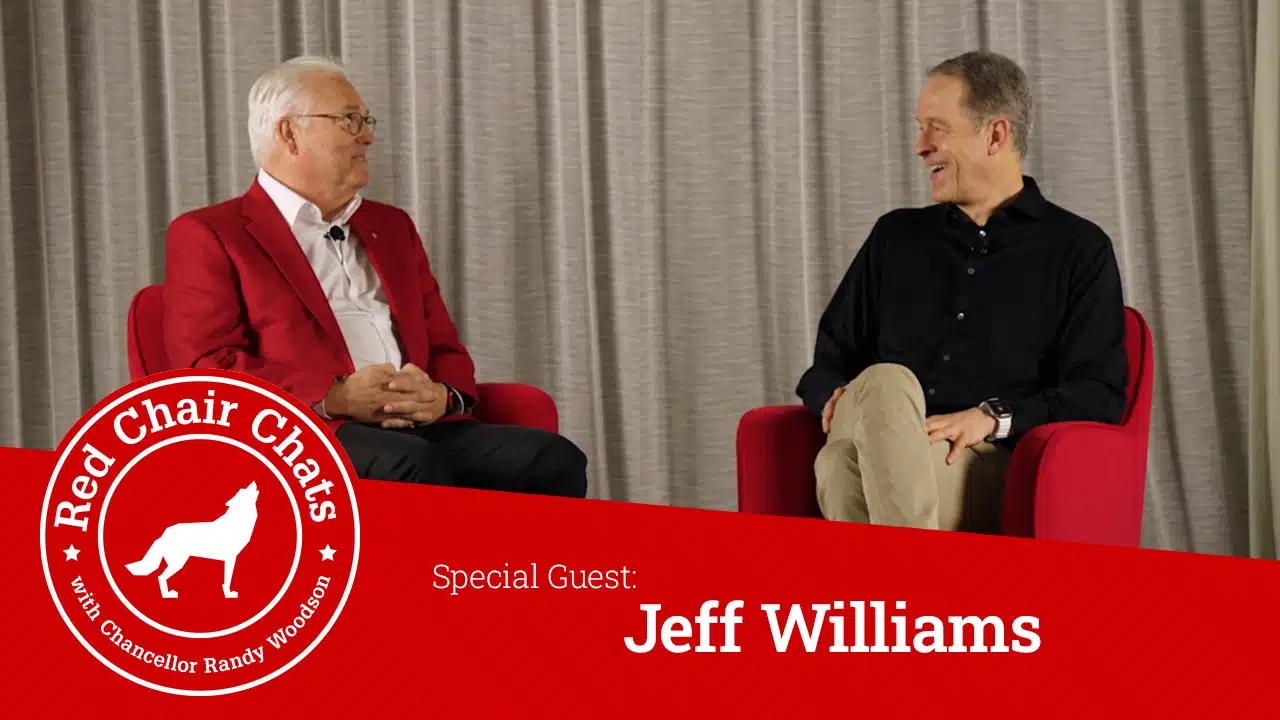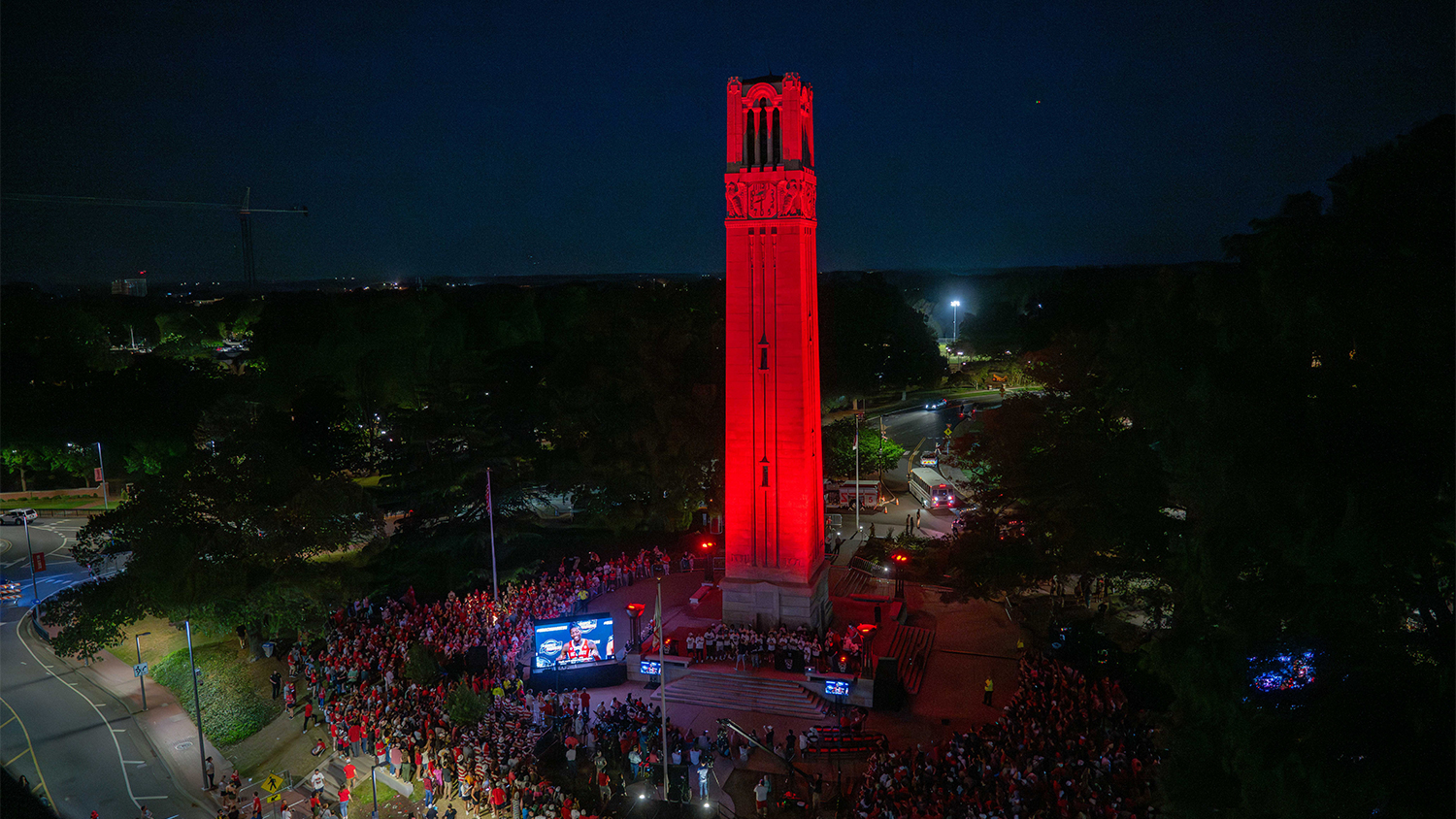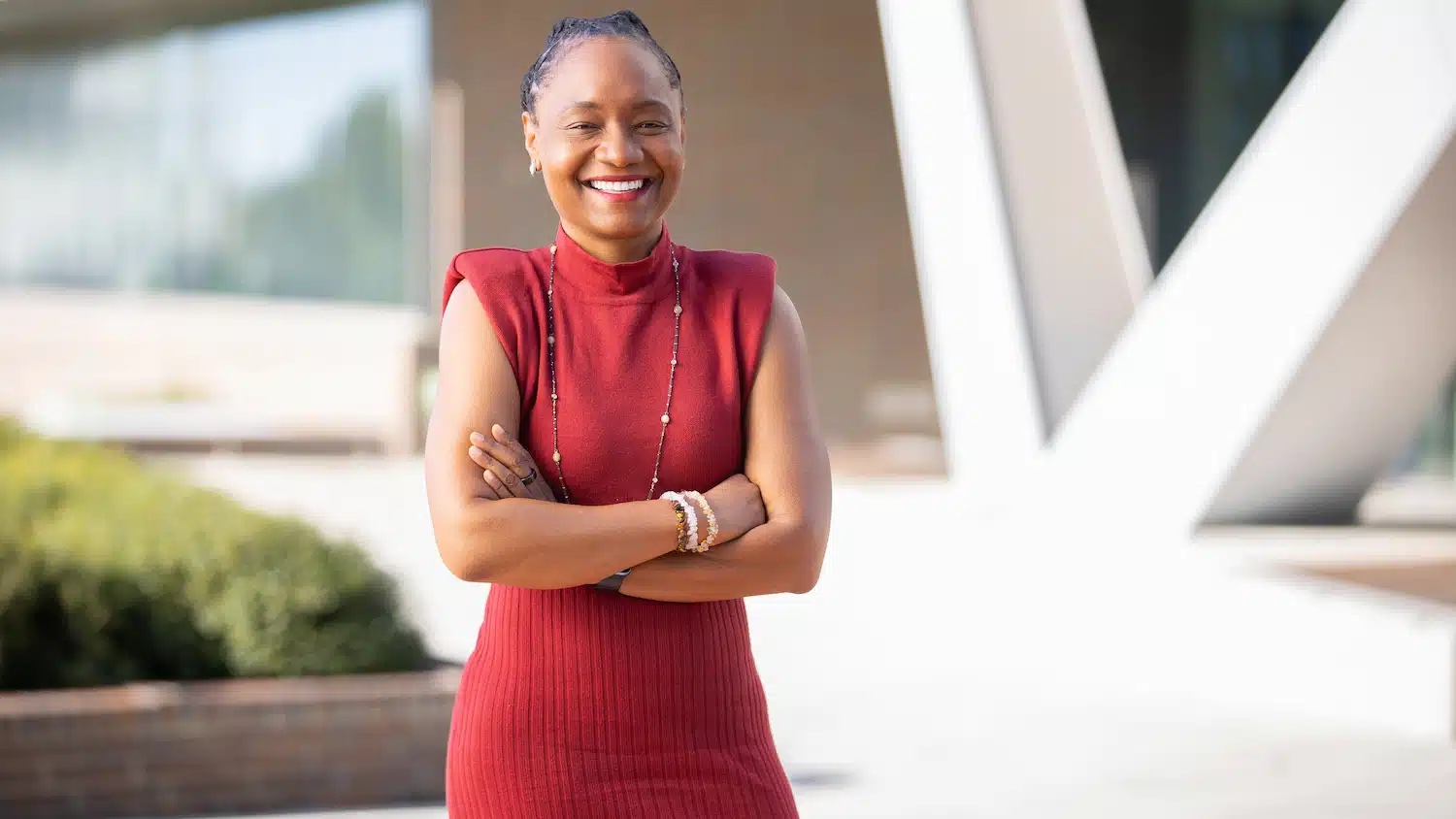Philanthropy helps ‘what if’ become ‘what is’ for 2013 graduates

“What if, what if, what if no longer exists.”
Nine simple words summed up a big idea when then-seniors KeJuan Weaver, Hillary Spangler and Andrew Miller filmed a video thanking those who had helped them begin chasing their dreams at NC State.
Now, almost six years after graduation, this impressive group of 2013 alumni is proving that Think and Do is much more than a mantra. It’s a way of life at NC State, and it helps drive a campus toward big goals while giving students extraordinary experiences.
Weaver, Spangler and Miller took full advantage of those hands-on learning experiences through the Caldwell Fellows and Park Scholarships programs.
Exposure to transformational moments during their time at NC State allowed them to explore their passions, to learn more about the world they were entering and to make a plan for how they would change it — how they would turn “what if” into “what is.”
“I’m a firm believer that positive acts are contagious. Andrew and KeJuan, along with others I met at NC State, all had this passion to make a positive change,” Spangler said.
The passion for positively impacting the world hasn’t wavered for Spangler, Weaver and Miller.
All three are doing just that, and they returned to campus in November to give thanks to donors in person during Red and White Night, the annual celebration of the ways philanthropy is transforming the university.
“The farther I get away from NC State, the more I’m able to reflect on the quality of people there. A lot of universities have smart people, but I think NC State has particularly nice people who also happen to be smart,” Miller said.
“Maybe it comes from NC State’s land-grant, ag-based history and more humble roots, but it is a world-class institution filled with smart people who are incredibly kind, generous and humble. You can’t help but feel that comradery when you are on campus, and it inspires people to succeed.”
Spangler agreed, adding that her student experience included dozens of moments when she saw a “bigger we” at work.
“Collectively, we believed we would change the world. That’s because of the little things that add up when your heart is in the right place. People do amazing things every day at NC State, and it’s cool to be a small part of it.”
Park Scholars Program Opens Doors
Success has taken different forms for the 2013 graduates.
After earning a bachelor’s degree in biomedical engineering at NC State, Miller earned a master’s degree at Duke University before completing the Triangle-school trifecta by attending medical school at the University of North Carolina at Chapel Hill.
The Elon native is now in the midst of a pediatric residency in Virginia, and he hopes to one day open a pediatric practice in a rural, underserved area.
Miller came to NC State thinking he would end up in the medical field but credits the Park Scholarships program with allowing him to pursue his dreams in a different way. The scholarship provided a pathway to achieving his goals.
“I was thrilled. I had a vague inkling of what it would mean for my life and eventually my career, but I certainly didn’t understand fully,” Miller says, recalling what went through his mind when he learned he’d be a Park Scholar. “Scholarships certainly aren’t all about the money, but the Park gave me this sense of freedom to explore my dreams. It allowed me to do what I feel called to do, and it’s been a real gift.”
As part of his senior project, Miller and others traveled to Ethiopia to help develop a better way for hospitals to get access to medical-grade oxygen.
“This isn’t something that is even on the radar for physicians in the United States. You turn on the nozzle, and you have oxygen. But that’s not true in many other parts of the world. That was a neat project because we all worked together and were dedicated to reaching one goal and solving this problem,” he said.

“It’s an example of how scholarships can make the world better. When people have financial freedom, the ripple effect extends so far beyond NC State. Scholarships help students make decisions that will help others around them as much or more than they help themselves.”
Embracing Challenges, Developing Passions
The idea of helping others also hit home for Weaver and Spangler during their time at NC State. Both had chances to learn, grow and serve others while participating in the Caldwell Fellows program.
Named for former NC State Chancellor John T. Caldwell (1959-1975), the program is dedicated to developing students as individuals and as servant-leaders on campus and throughout their lives.
Caldwell Fellows have the chance to participate in structured and self-designed experiences, and an annual stipend is meant to encourage students to “take a risk they may not otherwise take and invest in an experience that will benefit them as individuals and servant-leaders.”
Spangler took that challenge to heart, and it helped her develop a passion for helping others.
With her stipend, she developed nutrition programs to teach children about healthy eating habits, and the program culminated in Spangler writing a children’s book that advocates healthy living.
“The Caldwell Fellows program played such a large role in developing my passions,” Spangler said. “Through the stipend, I was able to combine some of my passions to help others. I would not have even considered writing a book without the Caldwell Program. What I’m doing today has been largely impacted by the people at NC State.”
After graduating with a bachelor’s degrees in nutrition science and biology, Spangler too went up the road and attended medical school at the University of North Carolina at Chapel Hill. She’s now completing a pediatrics/internal medicine residency.
It’s good to be back home again @ncstate with @caldwellfellows and @NCStateAlumni! #thinkanddo #gopack 🐺 🐾 pic.twitter.com/8OY7bl88MX
— Hillary Spangler (@SpanglerHillary) November 3, 2018
Spangler said she embraces the idea that small acts of positivity can change the world, and said she’s thankful that donors helped create the experience she had at NC State.
“Gifts allow for that. A gift can make an impact on someone who can then impact someone else, and so on. Hopefully, you see that domino effect,” Spangler said. “Gifts certainly shaped my experience at NC State because I had opportunities to explore my passions. I’m a very blessed person, and I’ve had a crazy journey. I have a lot of gifts, and I want to return those in some way.”
Weaver is also focused on giving back in more ways than one.
After graduating with a bachelor’s degree in elementary education, he has taught for the past five years, the first two in Wake County and the last three at a public charter school he helped get off the ground in Dallas, Texas.

“One of the things I try to give my students is the idea of giving back to wherever you come from. Our goal is for our students to go to and through college, but we also share the idea of giving back to your community,” Weaver said.
“Instilling a mindset of gratitude and service has been huge for me, and I owe all of that to the Caldwell Fellows program because it changed my teaching philosophy.”
Weaver said finding a community of like-minded people in the Caldwell Fellows program, coupled with extraordinary experiences such as a wilderness expedition, were key in his college journey.
“It’s different in the Caldwell program, and I was so grateful to be a part of a group of individuals that loved the idea of service,” he said.
“The experiences I had in the program were the important thing because it molded who I am. I still reflect on those experiences, even five years later.”
Like Spangler, Weaver said donors who support programs that help students will never be able to fully understand the impact they’ll make on a person’s college experience.
“There is a saying that teachers are the only people who don’t know how far their influence will go, and it’s true. But the same can be said of a donor,” he said. “You don’t know the true impact of a gift, but I can say without a doubt that the experiences I had at NC State helped me become the person I am today.”
This post was originally published in Giving News.
- Categories:


